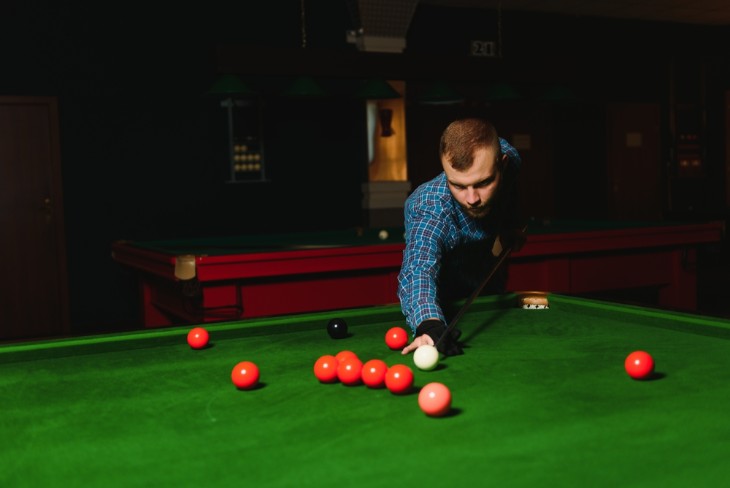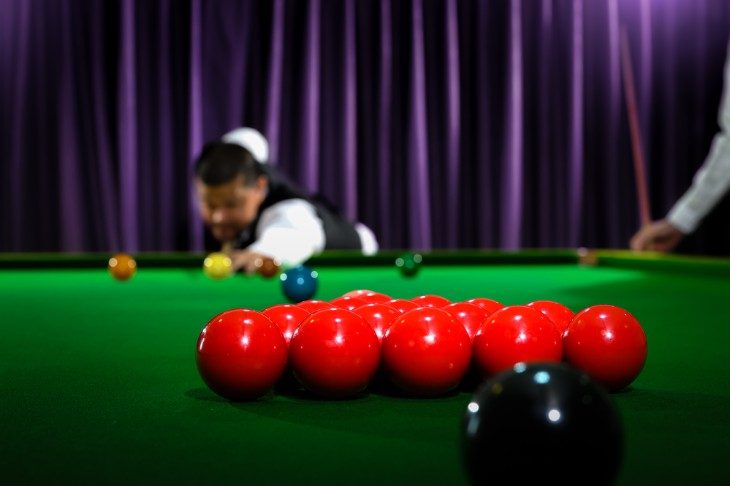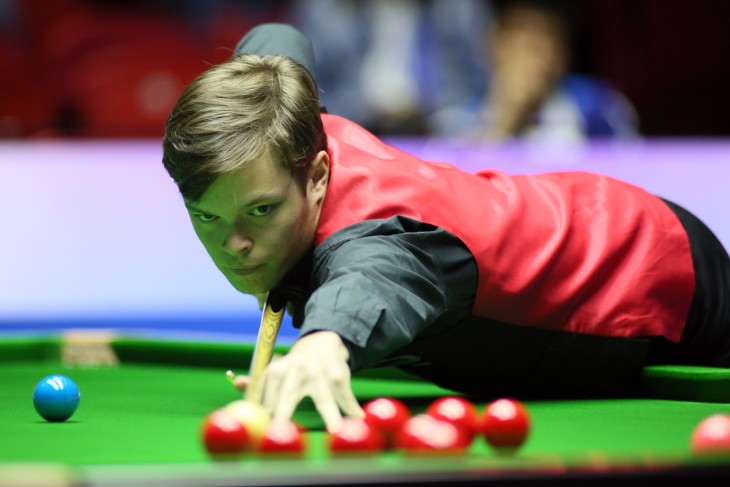- The Intricacies of Foul and Miss in Snooker: A Fundamental Understanding
- Factors Influencing Foul and Miss Penalties in Matches
- Strategies for Predicting Foul and Miss Incidents in Betting
- Leveraging Statistical Analysis in Foul and Miss Penalty Betting
- The Role of Psychological Factors in Anticipating Fouls
- Impact of Match Conditions on Foul and Miss Probability
- The Excitement and Challenges of Foul and Miss Penalty Betting
- Final Verdict
Snooker, a game renowned for its precision and skill, also harbours a complex aspect known as the 'foul and miss' penalty. This facet of the game opens a unique avenue in the world of sports betting. Understanding and predicting foul and missed penalties in snooker not only enhances the viewing experience but also offers insightful betting opportunities.
This article delves into the intricacies of foul and miss penalty betting, shedding light on strategies to anticipate these occurrences and make informed betting decisions.
The Intricacies of Foul and Miss in Snooker: A Fundamental Understanding
In Snooker, a 'foul and miss' is a rule that can change the game. It happens when a player doesn't hit the right ball and the referee thinks they didn't try hard enough. This rule is there to make sure players always try their best to hit the correct ball. When a foul and miss is called. They can also ask for the balls to be put back as they were, and the player who fouled has to try the shot again.
Understanding when a foul and miss will be called is important. It's not just about whether the player hits the wrong ball. It's about how well they tried to hit the right one. The referee looks at how the balls are set up and decides if the player could have hit the correct ball with a good effort. If the referee thinks the player could have done better, they call a foul and miss.
In betting, knowing about fouls and misses can be very useful. If you know a player is good at tricky shots, they might not foul as often. But if a player is not as skilled or is under a lot of pressure, they might make more fouls. Betting on whether there will be a foul or miss involves thinking about the player's skill, the difficulty of the shot, and how important the game is.
The foul-and-miss rule in snooker is about making sure players always try their best. It can lead to extra points and more chances for the other player. When betting, thinking about who is playing, how hard the shot is, and the game situation can help you guess if a foul and miss might happen.
[promotion:173]
Factors Influencing Foul and Miss Penalties in Matches
- Player's Skill Level: A player's skill is a big factor in fouls and misses. Skilled players are usually better at avoiding fouls because they can make precise shots. They know how to handle difficult situations on the table. But even the best players can make mistakes, especially if the shot is tough. So, knowing a player's skill level can help you guess if they might foul.
- Pressure of the Match: The pressure of the match also affects the likelihood of fouls. In high-pressure situations, like a close match or a big tournament, players might get nervous. This can lead them to make mistakes they wouldn't normally make. Players who are good under pressure are less likely to foul in these situations.
- Complexity of the Shot: The difficulty of the shot is another important factor. Some shots are harder than others. If the cue ball is in a tricky position, or if the player needs to hit a long shot, the chance of a foul goes up. When you're watching a match, look at how hard the shots are. This can give you a clue about whether a foul might happen.
- Player's Mental State: Finally, a player's mental state plays a big role in fouls and misses. If a player is feeling confident, they're more likely to make good shots and avoid fouls. But if they're feeling stressed or distracted, they might not play as well. Watching how players act during the match can give you hints about their mental state.

Strategies for Predicting Foul and Miss Incidents in Betting
- Analyzing Player Histories: One key strategy is to look at the players' histories. Some players have a track record of making more fouls under certain conditions. By checking their past performances, you can see how often they foul and in what types of situations. This information can help you predict if they might make a foul in the current match.
- Understanding Match Dynamics: The flow of the match can also give clues about potential fouls. If a player is far behind in points, they might take more risks. This can lead to more fouls. On the other hand, if a player is comfortably ahead, they might play more cautiously. Watching how the match is going can help you guess the players' strategies and the likelihood of fouls.
- Evaluating Shot Complexity: Pay attention to how complex each shot is. The harder the shot, the more likely a foul can occur. Look at where the cue ball is and what options the player has. If there are no easy shots, the risk of a foul goes up. Knowing the game well helps you understand when a shot is difficult and when a player might struggle.
- Monitoring Player's Body Language: Finally, watch the players' body language. Players who are feeling stressed or frustrated are more likely to make mistakes. If a player seems nervous or upset, they might be at higher risk of fouling. On the other hand, if a player looks calm and focused, they are more likely to play well and avoid fouls. Observing players carefully can give you valuable insights into their current state of mind.
Leveraging Statistical Analysis in Foul and Miss Penalty Betting
Using statistical analysis is a smart way to bet on foul and miss penalties in snooker. This means looking at data and numbers from past games to make good guesses about what might happen in future matches. Stats can show you how often a player fouls, especially in tough situations. They can also tell you about their history with foul and miss penalties.
For example, some players might have a record of fouling more under pressure. By looking at their past games, you can see patterns. Maybe they tend to foul more in big tournaments or when the score is close. This info can help you decide if they're likely to foul in their next game.
Also, stats can show you how players do on different types of shots. Some players might be good at long shots but struggle with shots where the balls are close together. If you know this, you can guess better when they might foul. You can look at the current game and see if the shots are the kind they find hard.
Technology makes it easy to get these stats. There are apps and websites that track all kinds of snooker data. They can give you up-to-date info on players and matches. This can help you make quick and informed betting decisions.
Using stats is a big help in betting on foul and miss penalties. It lets you use real data to make smart guesses. You're not just relying on luck or feelings. You're using solid information to decide how to bet.
The Role of Psychological Factors in Anticipating Fouls
- Player Confidence Levels: Confidence plays a huge role in snooker. Players with high confidence are less likely to foul. They trust their skills and make shots with more precision. When a player is feeling confident, they can handle tricky situations better. On the other hand, a lack of confidence can lead to doubt and mistakes. Watching how confidently a player approaches their shots can give you an idea of their foul risk.
- Response to Match Pressure: How players respond to pressure is another important psychological factor. In high-pressure situations, some players keep their cool and play well, while others get nervous and make more mistakes. Players who have a history of performing well under pressure are less likely to commit fouls in crucial moments. Observing how players react in tense parts of the match can help predict their likelihood of fouling.
- Mental Fatigue: Mental fatigue can also lead to fouls. In longer matches, players might get tired and lose focus. This can result in poor decision-making and increased chances of fouling. Keep an eye on players’ energy levels throughout the match. Signs of fatigue might indicate a higher chance of fouling as the game progresses.
- Handling Previous Mistakes: Finally, how players handle their previous mistakes can impact their future performance. Players who get upset or frustrated after making a mistake are more likely to foul again. They might lose concentration and struggle to get back into the game. On the other hand, players who stay calm and move on quickly from their mistakes are less likely to let one error lead to another. Observing players’ reactions after making mistakes can provide insights into their mental resilience and foul potential.

Impact of Match Conditions on Foul and Miss Probability
The conditions of a snooker match can really affect how likely a foul and miss is. One big factor is the pressure of the game. In big matches, like finals or important tournaments, players might feel more nervous. This can lead them to make mistakes they wouldn't usually make. If you know a player gets nervous in big games, you might bet they'll foul more.
The way the balls are set up on the table is also important. If the balls are in tricky positions, it's harder for players to avoid fouling. For example, if the cue ball is surrounded by other balls, the player has to make a really precise shot. If the setup looks tough, there's a higher chance of a foul and miss happening.
The condition of the table can make a difference too. On a new table, the balls might move faster and more smoothly. This can make it easier for players to control their shots and avoid fouls. But on an older table, the balls might not move as expected. This can lead to more fouls, especially for players who aren't used to it.
The atmosphere of the venue can affect players too. If there's a big crowd, some players might feel more pressure. This can make them more likely to foul. But other players might find that a big crowd gives them more energy and helps them focus.
When you're betting on foul and miss penalties in snooker, think about the match conditions. Consider how important the game is, how the balls are set up, the condition of the table, and the atmosphere. All these things can affect how likely a player is to foul.
The Excitement and Challenges of Foul and Miss Penalty Betting
Betting on foul and miss penalties in snooker brings its own excitement and challenges. It's not like betting on who will win the match. It's about guessing when a player might make a mistake. This adds a whole new layer to watching and betting on snooker.
One exciting part is the unpredictability. Fouls can happen at any time, often when least expected. This keeps bettors on the edge of their seats. You have to pay close attention to every shot. Even the best players can make a mistake, especially under pressure. This unpredictability makes betting on fouls and misses both thrilling and a bit nerve-wracking.
However, it's not all about luck. There's skill in predicting when a foul might happen. You have to understand the players and the game. If you know a player's style, their strengths and weaknesses, you can make a good guess about when they might foul. You also need to think about the match situation. A player who's behind in the score might take more risks, leading to more fouls.
But there are challenges too. Snooker is a complex game, and fouls can be hard to predict. Sometimes a player might make a great escape from a tough situation. Other times, an easy shot might go wrong. This uncertainty can make betting on fouls and misses quite tricky.
Betting on foul and miss penalties in snooker is a mix of excitement, skill, and challenge. It's not just about watching the balls go into the pockets. It's about understanding the game and the players, and trying to predict the unexpected. This makes it a unique and interesting way to enjoy and bet on snooker.
Final Verdict
Betting on foul and miss penalties in snooker is a nuanced and complex aspect of sports betting that requires a blend of analytical skills, psychological insight, and a thorough understanding of the game. By focusing on player tendencies, psychological factors, match conditions, and leveraging technology, bettors can enhance their ability to predict these critical moments in snooker matches. This not only enriches the betting experience but also deepens the overall appreciation of the strategic elements of snooker.



.webp)



 (1).webp)




















